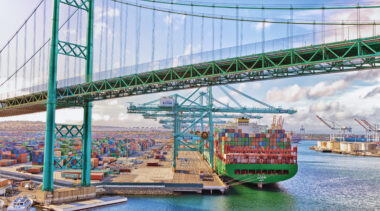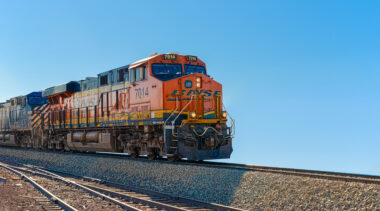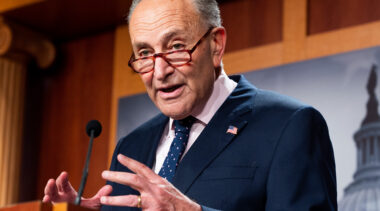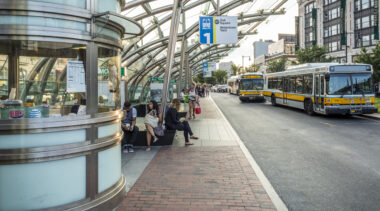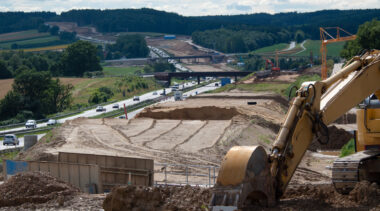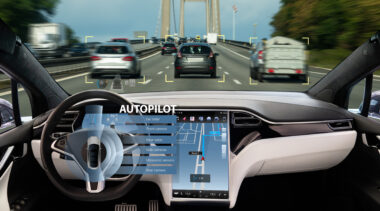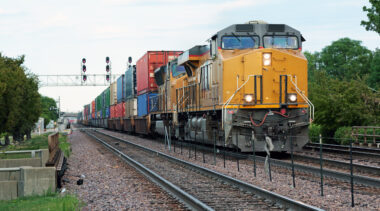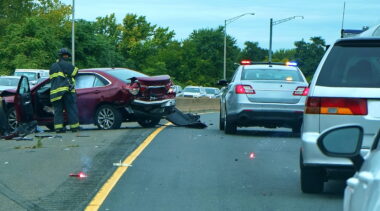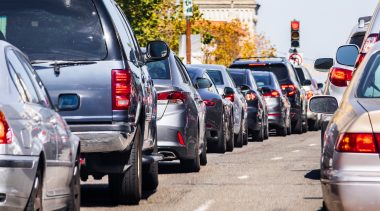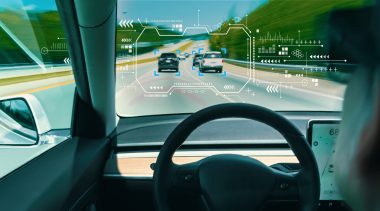Marc Scribner is a senior transportation policy analyst at Reason Foundation.
Scribner's work focuses on a variety of public policy issues related to transportation, land use, and urban growth, including infrastructure investment and operations, transportation safety and security, risk and regulation, privatization and public finance, urban redevelopment and property rights, and emerging transportation technologies such as automated road vehicles and unmanned aircraft systems. He frequently advises policymakers on these matters at the federal, state, and local levels.
Scribner has testified numerous times before Congress at the invitation of both Democrats and Republicans on issues including highway revenue collection, traffic congestion management, public transit productivity, freight rail regulation, airport financing, and air traffic control modernization. He is a member of the Transportation Research Board’s Standing Committee on Emerging Technology Law.
He has appeared on television and radio programs in outlets such as Fox Business Network, National Public Radio, and the Canadian Broadcasting Corporation, and has also written for numerous publications, including USA Today, The Washington Post, Wired, CNN.com, MSNBC.com, Forbes, and National Review. And his work has been featured by The Wall Street Journal, New York Times, Washington Post, Los Angeles Times, Scientific American, Congressional Quarterly, Washington Monthly, POLITICO, CNN, Bloomberg, BBC, C-SPAN, and other print, television, and radio outlets.
Scribner joined Reason Foundation after more than a decade at the Competitive Enterprise Institute, where he was a senior fellow in transportation policy. He received his undergraduate degree in economics and philosophy from George Washington University.
-
There are no quick and easy fixes to our supply chain challenges
For now, policymakers should be vigilant about avoiding well-meaning but counterproductive policy responses and, instead, work to improve long-run supply chain resilience by jettisoning existing harmful government policies.
-
New York City’s misguided automated vehicle rules
The new rule means automated vehicle developers would face legal uncertainty and may be deterred from testing their technologies in the city at all.
-
Pathways and policy for 21st-century freight rail
The successful development and deployment of automation technologies in the future is key to ensuring freight rail’s ongoing success.
-
The Senate’s infrastructure bill largely ignores automated vehicles
Congress should act quickly to pass narrowly tailored automated vehicles legislation to ensure U.S.-based AV developers are not at a disadvantage in the increasingly competitive global AV marketplace.
-
Comments Before the Office of The Secretary of Transportation In the Matter of Transporation Equity Data
Transit may never recover to pre-pandemic travel volumes, but bus transit that tends to serve lower-income people has rebounded much more than rail transit, which increasingly serves affluent professionals in central business districts who are likely to continue working at home in large numbers.
-
Unified Agenda Offers Good Look at Biden’s Transportation Regulatory Priorities
We know from the latest Unified Agenda that USDOT under President Biden has at least 27 newly planned regulations.
-
Increasing Access to Cars Advances More Equitable Outcomes
The challenge going forward is how to increase auto access to the remaining households that presently lack access to vehicles.
-
Private Activity Bonds Can Spur Infrastructure Investment
Congress could promote more private investment in public-purpose surface transportation infrastructure by harnessing the potential of private capital and project management expertise.
-
The Problematic Equity Case for Mass Transit
A large body of research suggests something quite different: access to private automobiles—not transit—is a powerful social equalizer.
-
Congress Should Modernize Regulatory Authorities to Support Automated Vehicle Development
Automated vehicles have great potential to improve safety, mobility, and access for Americans.
-
Right Now, Infrastructure Policy Should Focus on Fixing and Maintaining What We Have
Congress should focus on maintaining and modernizing existing infrastructure under a “fix it first” strategy.
-
Comments on the National Highway Traffic Safety Administration Framework for Automated Driving System Safety
The NHTSA should not attempt to develop government-unique technical standards and incorporate those government-unique standards into Federal Motor Vehicle Safety Standards for automated vehicles at this time.
-
Should Freight Train Crew Sizes Be Regulated?
Part seven of Reason's Debatable Ideas series examines crew-size minimums.
-
What’s the Story Behind Increased Traffic Fatalities During the Pandemic?
While urban areas have seen an uptick in motor vehicle fatalities during the pandemic, the trend is mostly coming from rural areas.
-
Debatable Ideas: Examining Key Transportation Issues, Myths and Misconceptions
In this series, Reason's transportation policy analysts examine key infrastructure issues, including common myths and misconceptions found in today's policy debates.
-
Should Automated Vehicle Regulations Precede Technical Standardization?
Part three of Reason's Debatable Ideas series examines whether premature regulations would actually threaten ongoing AV development and the large potential safety and mobility benefits of automated vehicles.
-
Challenges and Opportunities for Federal Automated Vehicle Policy
This policy brief aims to provide guidance to federal policymakers as they work to develop a pro-innovation national framework for automated vehicles.
-
How the Biden Administration and Congress Can Pave the Path for Automated Vehicles
New policy brief lays out several steps federal policymakers can take to adapt the automotive regulatory apparatus to automated driving system technologies.

